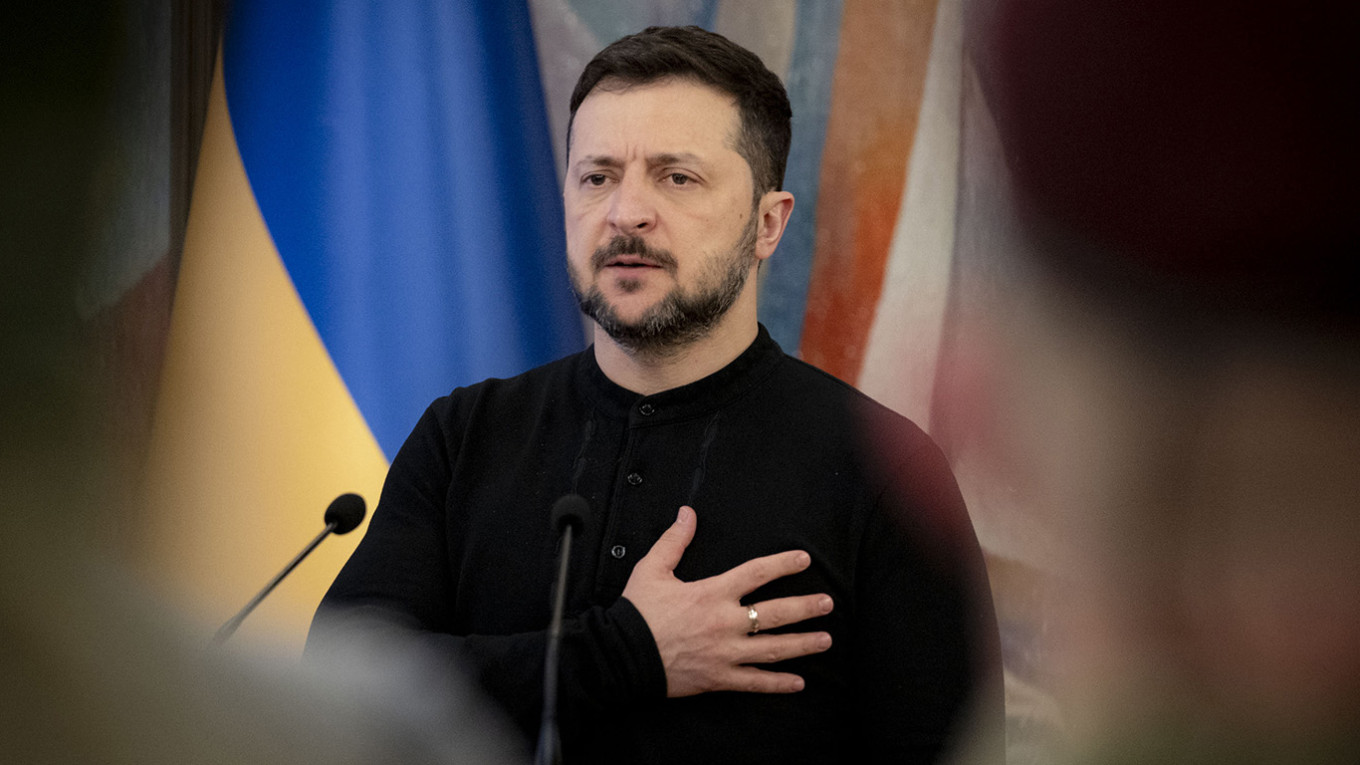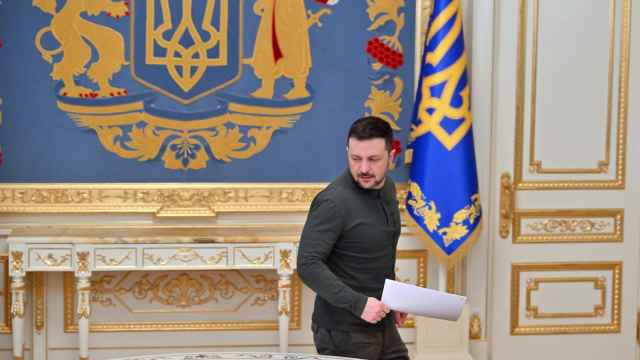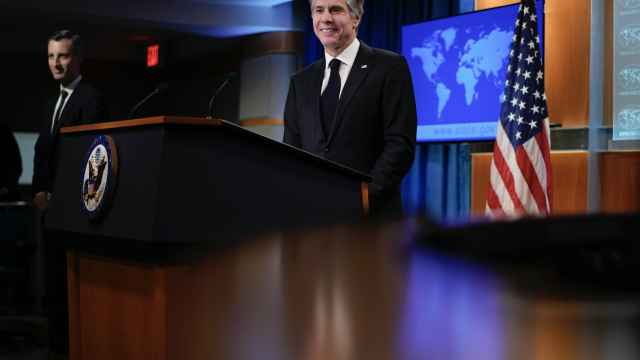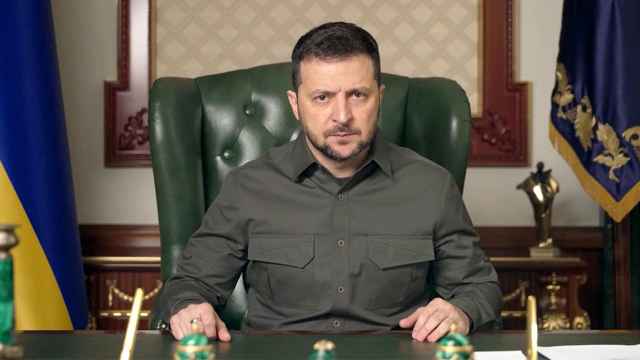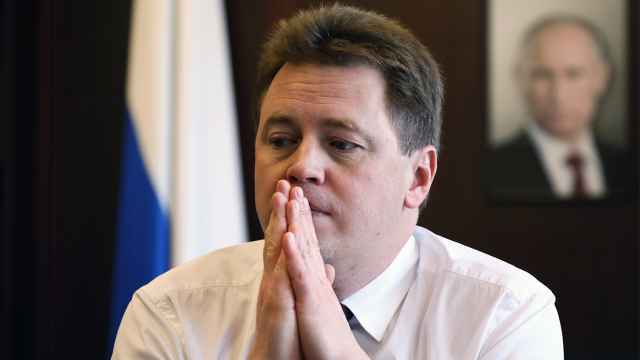Leaders in the U.S., Russia and Ukraine have softened their positions on the prospect of negotiating an end to Moscow's full-scale war against Kyiv in the last week as momentum for talks continues to build.
All parties to the war have until now taken maximalist positions, with Ukrainian President Volodymyr Zelensky saying he would not start talks until all Russian troops had left Ukraine’s territory and the country's 1991 borders were restored.
Russia's Vladimir Putin has been adamant that Russia will not give up any of the territories it has annexed and continues to insist on an “ironclad” guarantee that Ukraine will never join NATO. He also ruled out directly speaking with Zelensky, who he deems "illegitimate" since his presidential term expired last year during martial law.
This week, the Kremlin indicated it was open to talks with Zelensky.
"Mr. Zelensky has big problems de jure in terms of his legitimacy, but even so, the Russian side remains open to negotiations," Kremlin spokesman Dmitry Peskov told reporters on Wednesday.
Zelensky has also softened his position, saying for the first time in over two years this week that he was ready to meet Putin face-to-face despite banning himself from direct contact with the Russian leader in October 2022 by decree.
Surprisingly, the U.S. position appears to have edged closer to Russia’s after Secretary of State Marco Rubio admitted that the world has become a “multipolar” order.
On Feb. 1, Rubio said that multipolarity is returning after the post-Cold-War era of unipolarity, with other countries like China and Russia playing a role in world politics again. Rubio called the existence of a unipolar world abnormal and anomalous.
The U.S., he said, “has become a kind of world government in many cases, trying to solve every problem,” and “terrible things are happening in the world.”
“Eventually you’re going to get back to the point where you have a multipolar world, multiple great powers in different parts of the planet,” Rubio said.
Putin has for years complained about the “unipolar” world order led by a U.S. hegemony and called for a multipolar order to replace it, a call backed by China's Xi Jinping.
The Kremlin said it welcomed Rubio's multipolarity remarks.
"This corresponds to our understanding, our vision and the vision of our president," Peskov said.
Rubio has also suggested that he will take a pragmatic line in any talks and called on both sides to make “concessions,” which has been interpreted to mean he expects that Kyiv will have to concede control over some of the 20% of Ukrainian lands currently under Russian control.
A leak from the Kremlin late last year suggested that it would give limited wiggle room in territorial negotiations. Experts say that Ukrainian-controlled lands in Russia's Kursk region could be swapped for land currently occupied by Russian forces in Donbas.
Nevertheless, Putin has repeatedly said that Kyiv will have to account for “realities on the ground,” widely interpreted to mean that Putin intends to hang on to most of the land Russia occupies, including Crimea, the land bridge connecting Crimea to Russia and most of the four regions annexed by Moscow in 2022.
Another obstacle to overcome is who will participate in the negotiations. Putin wants a bilateral negotiation between the Kremlin and the White House. Zelensky has called for four-way talks that also include Kyiv and the European Union. Putin said last week that it was “too early” to talk about four-way talks.
A rough timetable for negotiations has emerged that kicks off with a Ramstein meeting of the Ukraine Defense Contact Group on Feb. 12 where more military support will be pledged to make it clear that Ukraine will be provided with the means to continue the fight if needs be to bolster its negotiating position in talks with Russia.
On Feb. 14-16, Keith Kellogg, the U.S. special envoy for Ukraine and Russia, is expected to present the much-anticipated U.S. plan to end the conflict at the Munich Security Conference.
U.S. President Donald Trump has called for the conflict to be ended within the first 100 days of his presidency. No details of the plan have been released, although there has been a lot of speculation as to what it might contain.
Following the Munich conference, Kellogg is due to make his first trip to Kyiv to meet Zelensky and other Ukrainian officials.
Meanwhile, Zelensky is reportedly planning to travel to several countries in the Gulf region after the Munich conference to bolster Ukraine’s support in the Middle East.
Kellogg has signaled that the U.S. would like to see elections held in Ukraine after a ceasefire, while Trump has indicated that access to Ukraine’s critical rare earth deposits could be part of a settlement in return for U.S. support.
Ceasefire plan
The upcoming ceasefire talks will be the third attempt at bringing the war to an end. The failed Istanbul peace deal in 2022 was followed by a tentative attempt in August 2024 to enter Qatar-mediated talks to end Russia’s bombing of Ukraine’s energy infrastructure. Those talks were quickly aborted following Ukraine’s Kursk incursion that month. Hopes for talks had been building in the middle of 2024 and Zelenskiy said several times that he hoped to bring the war to an end that year.
In the meantime, ahead of the latest attempt to end the fighting, Kyiv has been left in limbo as the level of U.S. support for Ukraine remains unclear. Missing money, delayed arms deliveries and demands for mining deals have dominated headlines as Zelensky lobbies the White House to continue its fulsome support in the face of a slow collapse of Ukraine’s defenses in the Donbas.
Kyiv said talks with the White House have reached an “active” stage, but no agreements on new military packages have been reached yet. Reports said that Trump briefly cut off military supply deliveries as the White House debated the matter internally.
“[U.S. support] has not been stopped; it continues, and I am grateful to the U.S. for this. Of course, we are not talking about new packages yet — it is too early to discuss that," Zelensky said at a press conference in Kyiv following a meeting with British Foreign Secretary David Lammy on Wednesday.
All eyes will be on Kellogg’s Munich appearance and the details of the Trump administration’s plan to end the war. Among the anticipated components of the plan are a freeze of the conflict and the provision of unspecified security guarantees to Ukraine, with the status of Russian-occupied territories left in limbo.
Zelensky has previously said that NATO membership is the “cheapest” option and the most reliable security guarantee for the West. He has also said he would accept a “partial” membership where only Ukrainian territories under Kyiv's control are included in the security deal. But Ukraine’s allies have so far been reluctant to offer Kyiv concrete security deals.
This week, the Ukrainian president said that if the West was unwilling to take Ukraine into NATO or secure its territory, then Kyiv should be given nuclear weapons to deter Russia from future attacks. The Kremlin said Zelensky's call was “madness,” although Putin has repeatedly, but indirectly, threatened to use nuclear weapons to bring the conflict in Ukraine to an end.
This article first appeared in bne IntelliNews.
A Message from The Moscow Times:
Dear readers,
We are facing unprecedented challenges. Russia's Prosecutor General's Office has designated The Moscow Times as an "undesirable" organization, criminalizing our work and putting our staff at risk of prosecution. This follows our earlier unjust labeling as a "foreign agent."
These actions are direct attempts to silence independent journalism in Russia. The authorities claim our work "discredits the decisions of the Russian leadership." We see things differently: we strive to provide accurate, unbiased reporting on Russia.
We, the journalists of The Moscow Times, refuse to be silenced. But to continue our work, we need your help.
Your support, no matter how small, makes a world of difference. If you can, please support us monthly starting from just $2. It's quick to set up, and every contribution makes a significant impact.
By supporting The Moscow Times, you're defending open, independent journalism in the face of repression. Thank you for standing with us.
Remind me later.



